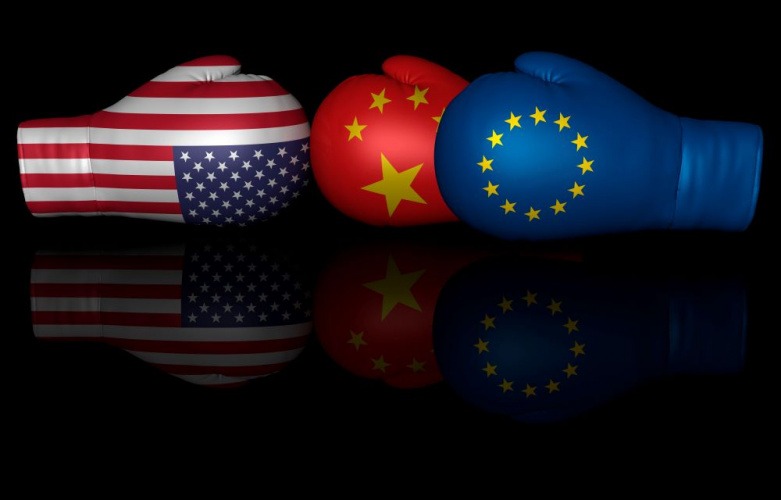“China has been on the verge of becoming the world’s number one economic power for the past four decades, joining international institutions and seizing all opportunities for global trade and influence in Western markets,” Morteza Makki told the Strategic Council on Foreign Relations website. He said in the military sphere too China has the largest defense budget after the United States and has been trying to expand trade with Europe, Asia and Africa for decades through the huge Silk Road project.”
“This has created a serious competition between the United States and Europe,” Makki said, stressing that this is a major threat to US global politics.
The expert believes that there is almost no difference between Republicans and Democrats in China’s containment policy, and continued: “As the Barack Obama administration in the 10-year strategy of US national security, described China as the most important threat to the US and calls for concentration of world politics. On containment of China the same policy continued in a different way by Donald Trump over the past four years.”
“The only exception was that Trump was trying to pursue a policy of containment against China unilaterally and without converging with US allies in East Asia,” he added.
“Tensions between Beijing and Washington are expected to escalate as Biden comes to power in the United States, especially as Democrats use human rights tool to put pressure on China,” Makki said. “Biden and his foreign and security policy team believe in a multilateral policy to advance US global goals, and expect their European allies to align with the White House policy in East Asia to contain China.”
“This is because China’s economy is so intertwined with that of Europe, and China is the number one partner of many countries,” he said, noting that European governments look at the United States differently from China. “Many well-known European brands have also invested heavily in China, and it can be said that in the face of the global recession, China may have been the only engine for sustaining the economic growth of European governments.”
He said that in the interaction between European countries and China, it is the European powers that direct and manage their approach to China at the global level, adding: “Countries such as France, Germany, Britain, and Italy are among the countries that are trying to “Use China’s high economic potential for economic growth and development.”
He said the goals of these countries in expanding relations with China were first to exploit China’s large consumer market and then to attract Chinese investment in European governments’ economic projects.
Emphasizing that France and other European countries are well aware of the expansion of China’s economic and political influence in Europe and elsewhere, Makki said: “However, they cannot replace China with another country to fill the large gaps in their economies.
“That is why French President Emmanuel Macron has made it clear in his latest statement that he cannot follow the American critical approach to China,” he said.
He believes that if there is criticism inside Europe of European governments’ relations with China, it is the critics from the left and the Green Party that are very sensitive about the issue of human rights violations in China and want to be addressed. “European right-wing and center-right parties are largely uncritical of the development of Chinese relations,” Makki added.
“One of the issues that have prevented the EU from achieving the full goals of convergence and the single market is the nature of the policy dispute,” he said, referring to the factors influencing the slowdown in European integration and China’s role. It is foreign and security and it is related to the transatlantic view, especially in Eastern Europe, because the countries of Eastern Europe have faced a vacuum after the election and are trying to fill it with proximity to the United States, which makes it impossible to “let them unite.”
“The United States also claims that China is infiltrating the European Union, and by expanding its influence it can widen the gap between EU member states, because when weak European countries become dependent on China, they are less likely to cooperate within the framework of European integration policy with France and Germany playing a central role. “This is a debate that is taking place in the political circles and media of the European Union, and in this regard, they consider the development of relations with China a threat.”










0 Comments